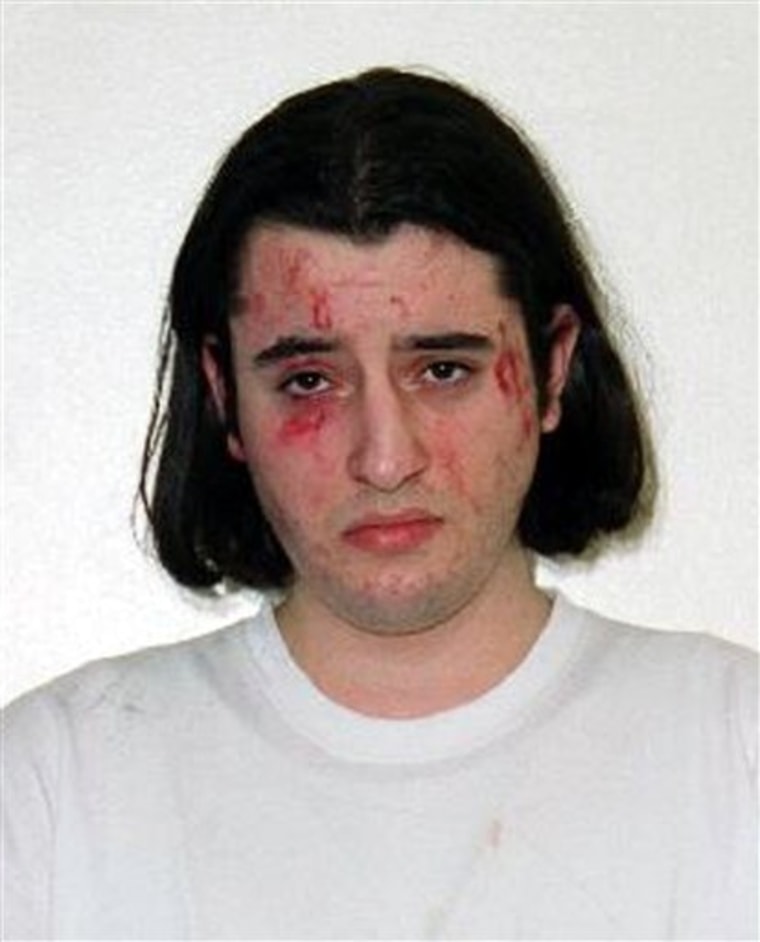An al-Qaida inspired computer expert who dubbed himself "the jihadist James Bond" was ordered imprisoned for 10 years Thursday for running a network of Web sites and hoarding videos of the murders of Americans Nick Berg and Daniel Pearl.
Morocco-born Younis Tsouli, 23, who prosecutors said had uploaded guides to building suicide vests onto the Internet, used the online ID "irhabi007" — the Arabic word for terrorist and the code name of the fictional British spy.
With accomplices Tariq al-Daour and Waseem Mughal — who were also ordered imprisoned Thursday — Tsouli offered advice and motivation to would-be terrorists on a myriad of Web pages run from their London homes, prosecutors said.
The group was the leading distributor of terrorist material on the Internet prior to the three being arrested in 2005, said Evan Kohlmann, a U.S.-based terrorism consultant who gave evidence in the case.
"There are people, including law enforcers, who initially thought these guys were computer geeks or hackers," Kohlmann told The Associated Press in a telephone interview from Washington.
"But they were a lot more dangerous, they were the key aides to al-Qaida. There was no one more skilled at what they did."
Images of Washington were found on Tsouli's computer hard drive, stored alongside details of how to make car bombs, cause explosions and produce poisons, prosecutors said.
U.S. law enforcement officials have said the Capitol building was featured in short video clips, but that they were skeptical an attack was being planned.
The case marks the first terrorism convictions in Britain based purely on evidence about use of the Internet, Judge Charles Openshaw said.
Openshaw said Tsouli was a danger, even though "he came no closer to a bomb or a firearm than a computer keyboard."
Tsouli had a clear link to then-leader of al-Qaida in Iraq, Abu Musab al-Zarqawi, who was killed by a U.S. airstrike last year, Kohlmann said.
"He was acting like a travel agent for would-be suicide bombers, sending them straight to al-Zarqawi," said Kohlmann, a case consultant for London police.
Al-Daour, a 21-year-old, who prosecutors said hoped to study law, was sentenced to 6 1/2 years and biochemistry graduate Waseem Mughal, 24, got 7 1/2 years. All three had pleaded guilty to inciting others to commit acts of terrorism.
Tsouli had referred to receiving orders from al-Qaida leaders in an online exchange with Mughal, claiming "AQ" had asked him to translate a book into English, Ellison said.
Following searches of the group's computers, storage drives and DVDs, police said they had found extremist material that — if printed out and piled up — would stand thousands of feet high.
Videos recovered included footage of the beheading of Berg, a 26-year-old American contractor, killed in Iraq in 2004 and the 2002 kidnapping and murder of Pearl, the U.S journalist, in Pakistan.
The three were arrested in 2005 as part of a Europe-wide operation to break up an alleged terror cell, which prosecutors said was planning an attack. Arrests were made in Bosnia, Denmark and Britain.
United Arab Emirates-born al-Daour, Tsouli and British-born Mughal of Chatham also admitted charges of attempting to defraud banks and credit card companies.
